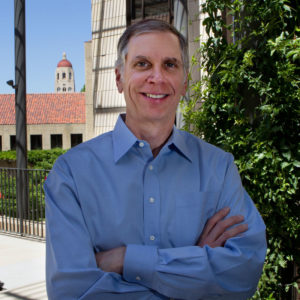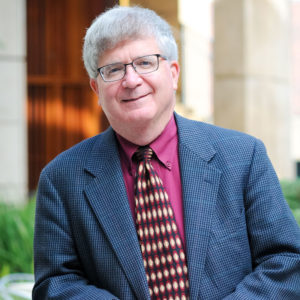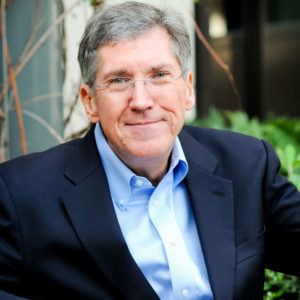Constitution Day Reflections: Stanford Law School Faculty on Top Constitutional Issues Facing Courts Today
Constitution Day is observed each year on September 17th to recognize the adoption of the United States Constitution. In honor of the day, Stanford Law School faculty offers their thoughts on the top constitutional issues facing the courts today.
John J. Donohue III, C. Wendell and Edith M. Carlsmith Professor of Law
“The most important question in the gun arena that has now generated a split in the circuits is whether there is an individual right under the Second Amendment to carry guns outside the home. The Heller decision in 2008 said that individuals have a constitutional right to have guns in the home for self-protection. The ruling was somewhat disingenuous in that it suggested that it was a limited decision that only applied to having guns on one’s own property. Clearly, though, the intent of the pro-gun justices was to rule that there is an individual constitutional right to keep and bear arms and now that Heller has established the “keep” element, a second decision will extend this right to the “bear” element. Since the best empirical evidence suggests that when states allow citizens to carry concealed handguns, violent crime increases, it would probably be a bad idea to extend the Second Amendment right to carry weapons outside the home, especially since this in no way would further the goals of a well-regulated militia. It is worth noting that Australia bans the use of guns for self-defense and has a murder rate that is one-fourth of ours and a robbery rate that is about half that of the US.”
Michael W. McConnell, Richard and Frances Mallery Professor of Law and Director of the Constitutional Law Center
“One of the key constitutional issues facing the courts today is determining the limits, if any, on the power of the Executive Branch to enforce or refuse to enforce law without congressional authorization.”
Jane S. Schacter, William Nelson Cromwell Professor of Law
“The most important constitutional question of the day strikes me as a meta-question: Can the Constitution function effectively in the conditions of contemporary American society? Yawning income inequality, corrosive political polarization, a dysfunctional system of campaign finance, entrenched racial segregation and alienation and other distressing features of the current landscape challenge the capacity of the institutions of government created by the Constitution. Following John Hart Ely and the idea of courts correcting for political malfunctions, judges could surely do more to address some of these questions. But the change will have to be deeper and more ambitious than anything judges can deliver. As I often say to my students: My generation has not done so well on this. I hope yours can do better.”
Deborah A. Sivas, Luke W. Cole Professor of Environmental Law
“The concept of representative democracy at the heart of the U.S. Constitution is today being squeezed by two worrisome developments. On one side are the cases striking down campaign finance reform under the theory that unlimited corporate expenditures on political campaigns are protected First Amendment speech. This line of cases includes not only the much-discussed Citizens United, but also the more recent and startling Arizona Free Enterprise Club v. Bennett, where the high court struck down a voter initiative (the Clean Elections Act) that provided candidates who accepted public campaign financing with matching money based on the amount spent by privately-funded opponents and their “independent” PACs. In a 5-4 decision, the Supreme Court held that these matching funds burdened the First Amendment rights of the privately-financed candidates. On the other side of this squeeze are attempts by some states to limit voting rights, especially among traditionally disenfranchised groups. Now that the Supreme Court has effectively gutted the Voting Rights Act, states have become emboldened to impose all kinds of subtle voting restrictions (under the guise of “voter fraud,” even though there is virtually no evidence of such fraud) targeted largely at already-underrepresented communities. The Supreme Court has shown some greater concern about this trend, but how it all plays out remains to be seen. These two forces – increasing corporate money and influence in elections and concerted state attempts to discourage voting by disadvantaged citizens – are undermining both the American ideal of “one person, one vote” and the very structure of representative government embodied in our Constitution.”
Barton H. “Buzz” Thompson, Jr., Robert E. Paradise Professor of Natural Resources Law
“The most important constitutional issues facing the courts today remain those that define how our political representatives are chosen. While the courts constrain the decisions that federal, state, and local political leaders make, most decisions are determined by our political representatives and not the courts. How political representatives are chosen influences all political decisions and are thus fundamentally critical. For this reason, next year’s decisions on apportionment and redistricting are among the most important the Supreme Court will decide.”
2 Responses to “Constitution Day Reflections: Stanford Law School Faculty on Top Constitutional Issues Facing Courts Today”
Comments are closed.
Post Pagination






Jaime L. Manzano
These members of the faculty seem to view themselves, and their profession, as social engineers pursuing their political ideologies and agendas. They seem to be driven to change the plain reading of the law into a pursuit of facile and imaginative interpretations of the meaning of words, rather than seeking to legislate change.
Christopher Nantista
Thank you. With due respect, I submit the following.
Prof. Donohue seems to believe the Constitution does not actually grant rights. Rather, he suggests that the right to “bear” (i.e. carry, as opposed to just have) arms will only come into effect if and when the Supreme Court explicitly “extends” this right. He invokes statistics to support his prudential preference, which should be of concern to legislators but not to interpreting judges. Our Constitution did not intend rule by philosopher kings.
Prof. McConnell makes an excellent point.
Prof. Schacter endorses maximum judicial activism to address the many grave ills she sees in our society, but, beyond that, she suggests the need to entirely scrap, rather than just ignore, the Constitution. Revolution anybody?
Prof. Sivas gratuitously mischaracterizes efforts to reduce voter fraud as targeting “already-underrepresented communities”. On the contrary, those who commit voter fraud are ipso facto over-represented. The American ideal is not “one person, one vote”, it’s “one non-felon adult citizen, one vote”.
Prof. Thompson seems reasonable.